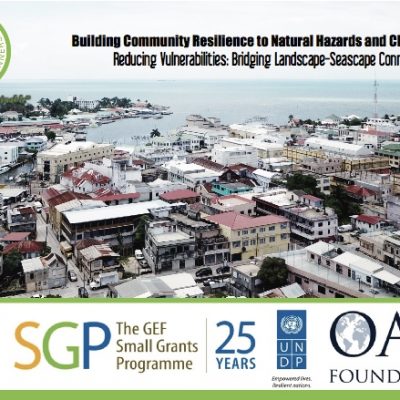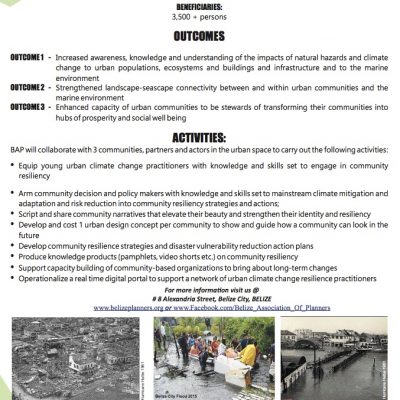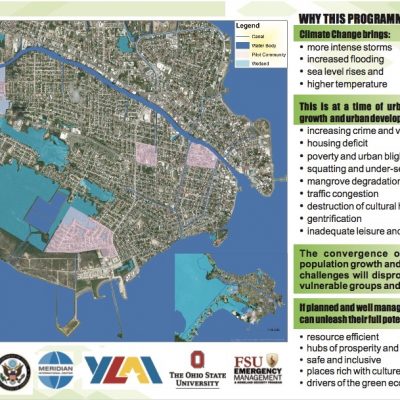The Belize Association of Planners is partnering with communities and actors in the urban space of Belize City to build community resilience to natural hazards and climate change, by reducing vulnerabilities of people, ecosystems and buildings and critical infrastructure, and bridging landscape-seascape connectivity. It is the intent of the association to contribute to creating a network of resilient, safe, inclusive and sustainable communities in the city by 2030.
Urban communities in Belize are confronted with many challenges today. These include large segments of their populations living in poverty; unplanned and unregulated development, unsound and deteriorating building stock and critical physical and social infrastructure; Inadequate green and recreational spaces and the destruction of cultural heritage to name a few.
This has manifested in urban blight and decay, housing deficits and insecure land tenure; urban informalism and inefficient urban sprawl; incompatible land use, traffic congestion, increasing homelessness, levels of crime and violence; poor nutrition and rising number of deaths by non-communicable diseases, pollution and environmental degradation, to name a few.
Exacerbating this state of affairs are rapid urbanization at an unsustainable rate, and climate change, which brings more intense storms, sea level rise and higher temperatures. Thus, already vulnerable urban communities and population groupings, for example, families, women and children living in challenging environments, the unemployed, the elderly, people living with diverse abilities, diabetes, cancer and HIV AIDS, are becoming even more vulnerable, resulting in a new form of marginalization and intensification of urban poverty.
This has caused urban areas to gain recognition as an important battleground for climate resilient action, for on the one hand, if planned and managed well, compact, inclusive and resource efficient urban areas can become drivers of the green economy, contributing to local livability and global public goods. However, if poorly managed, sprawling urban areas will degrade land, strain ecosystems and essential infrastructure services, increase levels of air and water pollution and disproportionately impact vulnerable groupings and people.
The Belize Association of Planners expresses its appreciation to our community partners, the GEF-SGP-UNDP, the US Embassy YLAI, Dr. Kareem Usher and the Ohio State University, Dr. Judith Cuadra and the Florida State University and the many individuals and organizations for partnering with us on this journey.
As the journey progresses, we will share our work with you, and we will continue to reach out to more persons, organizations and community groups, to partner with us.



